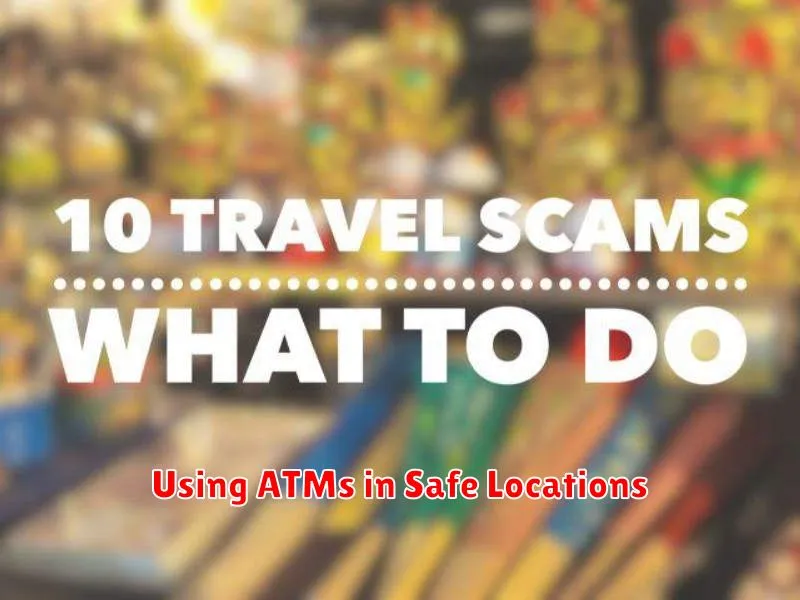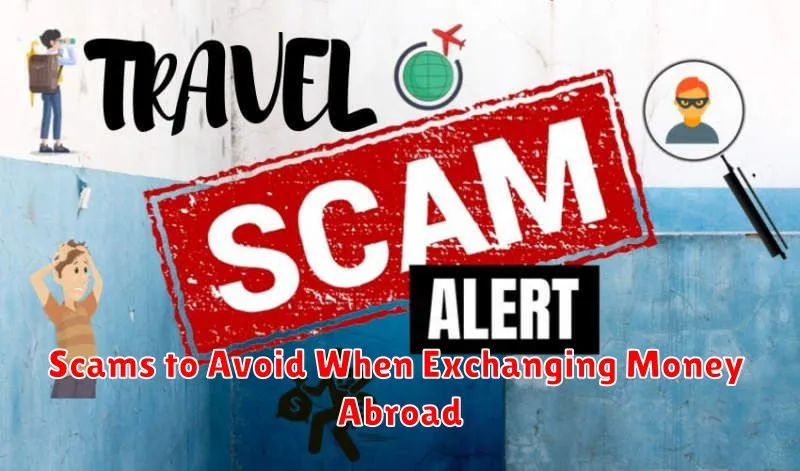Exchanging money abroad is a necessary part of international travel. However, it can also be a minefield of potential scams. From unfavorable exchange rates and hidden fees to outright theft, unsuspecting travelers can easily fall victim to fraudulent practices. This article will explore common currency exchange scams to be aware of, providing you with the knowledge to protect your finances while traveling internationally. Understanding these scams is crucial for anyone exchanging money abroad, whether you’re a seasoned globetrotter or planning your first trip.
Navigating the world of foreign currency exchange can be complex, and falling prey to a scam can significantly impact your travel budget. We will delve into the tactics employed by scammers, from distractions and sleight of hand to counterfeit currency and rigged ATMs. By recognizing the red flags and employing simple preventative measures, you can safeguard your money and enjoy a worry-free trip. Learn how to identify and avoid common scams when exchanging money abroad, ensuring a secure and enjoyable travel experience.
Fake Exchange Booths
Fake exchange booths are a common scam, especially in tourist-heavy areas. These booths often advertise incredibly favorable exchange rates to lure unsuspecting travelers. Once you hand over your money, they may give you counterfeit currency, significantly less money than you should receive, or simply disappear with your cash.
To avoid this scam, always exchange money at reputable locations such as banks, official exchange bureaus within airports, or well-established hotels. Be wary of standalone kiosks, especially those offering rates that seem too good to be true.
Unfair Exchange Rates
One of the most common scams targeting travelers is the unfair exchange rate. Some currency exchange bureaus, especially those in tourist-heavy areas, advertise deceptively attractive rates. However, these rates often come with hidden fees or are simply inflated.
Before exchanging any money, compare rates from different providers. Be wary of rates that seem too good to be true. Ask about all fees upfront, including commissions and service charges. A reputable exchange service will clearly disclose all costs involved.
Counterfeit Currency Risks
Receiving counterfeit currency is a serious risk when exchanging money abroad. Be particularly vigilant when dealing with unofficial exchange bureaus or individuals. Counterfeit bills can leave you with no recourse and a significant financial loss.
Minimize your risk by exchanging money only at reputable banks or official exchange offices. Inspect banknotes carefully. Familiarize yourself with the security features of the local currency before your trip.
Using ATMs in Safe Locations

ATMs can be a convenient way to access local currency, but they can also be targets for scammers. Choose ATMs located in well-lit, reputable establishments like banks or inside shopping malls. Avoid standalone ATMs in dimly lit or secluded areas, as these are more susceptible to tampering.
Be aware of your surroundings when using an ATM. If anyone is loitering suspiciously or seems overly interested in your transaction, cancel your transaction and find a different ATM. Shield the keypad when entering your PIN to prevent anyone from observing it. After completing your transaction, secure your cash and card immediately.
Not Letting Others Handle Your Money
A critical rule for avoiding scams is to always maintain control of your money during the exchange process. Never allow someone else to take your money to “count it” or “process the transaction” out of your sight. This opens the door for sleight-of-hand tricks, counterfeiting, or simply walking away with your funds.
Be wary of overly helpful individuals who insist on assisting with the exchange. Be polite but firm in handling your own finances. A legitimate exchange bureau or bank will not pressure you to relinquish control of your money.
Checking Every Transaction Slip
Verify every transaction slip you receive when exchanging currency. This simple step can prevent discrepancies and protect you from fraud. Scrutinize the exchange rate used, the commission charged, and the final amount you receive. Don’t hesitate to ask questions if anything is unclear.
Compare the slip with your own calculations to ensure accuracy. A small error can quickly add up, especially when exchanging larger amounts. Keep your slips organized throughout your trip to easily track your spending and identify any potential issues.
Tips for Carrying Cash Safely
When traveling internationally, carrying some local currency can be essential. However, it’s crucial to prioritize safety. Distribute your cash. Don’t keep all your money in one place. Utilize a combination of methods like a money belt, a hidden pocket inside your clothing, and a small amount in your wallet for easy access. Be discreet when accessing your money in public. Avoid displaying large wads of cash, and be mindful of your surroundings.
Keep a record of your cash withdrawals and spending. This helps you track your funds and notice any discrepancies quickly. Inform your bank of your travel dates to avoid any issues with your cards being blocked due to suspicious activity. In case of theft, having a record will be helpful for insurance claims.

